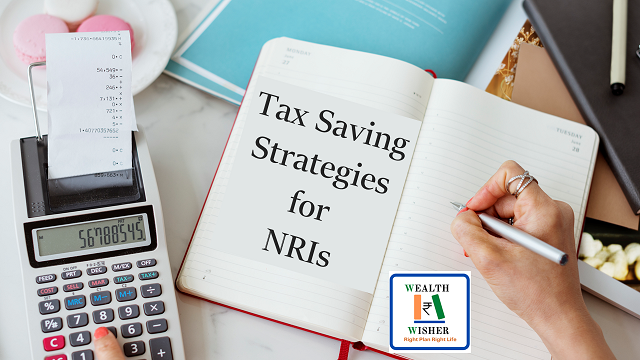Tax is an obligation – to pay on time and pay right! Matters also get complex if you are an NRI and not in touch with India. But no problems… you must have checked our previous article on Tax Planning by NRIs. We maintain and keep this updated with the new changes. Today we will explore some Tax Saving Strategies for NRIs, which can help in minimizing tax as well as being on the right side of the taxation provisions.
This article provides tax strategies to lower or understand taxation. For tax rates & rules – Click Here for the latest Tax Rules/Rates for NRIs.
Tax Saving Strategies for NRIs
Strategy 1: NRI should know what is taxable
Not all incomes are taxable for NRIs. The below chart specifies what is taxable for a ROR (Resident), RNOR (Resident not Ordinarily Resident) & NR (Non-Resident).

Section 9 of Income Tax defines Income deemed to accrue or arise in India
Section 9(1)(i) – through Business Connection, property, asset or source of income or transfer of capital asset situated in India. It includes indirect transfer of assets outside India deriving substantial value from assets located in India.
Section 9(1)(ii)/(iii) – Salary. The place of rendering the services will determine taxability
Section 9(1)(iv) – Dividend. These are taxable on payment basis
Section 9(1)(v)/(vi)/(vii) – Interest / Royalty / FTS (Fee for Technical Service)
Strategy 2 : Know the exemptions on Income for NRIs
These exemptions are defined in Sec 10. These are:

So, one if the best Tax Saving Strategies for NRIs is to –
Make best use of NRE A/c, NRE FD & FCNR Deposits. To know about these accounts click here.
Similarly, if you are a returning Indian, make use of the RFC account.
There are more exemptions on Capital Gains. These are


Strategy 3 – Make Best use of Sec 80 Deductions
- Sec 80C – Life Insurance premium, Children’s tuition fee, Principal repayment on housing loan, ULIPS, ELSS, Contribution allowed to existing PPF only
- Sec 80D – Mediclaim
- Sec 80E – Interest on loan for higher education of self, spouse, children or student for whom NRI is guardian
- Sec 80G – Donations (50% or 100% as per the qualification of the done)
- Sec 80TTA – Savings account interest (up to Rs 10000)
- If you pay the interest on your home loan or the property tax on your property, you are eligible for a tax deduction.
Section 80CCD (1) – NRIs are eligible for a tax deduction on contributions you or your employer makes towards the National Pension System (NPS). The maximum tax deduction amount allowed is INR 1.5 lakh. There is an additional deduction of INR 50 000 allowed over and above the INR 1.5 lakh deduction limit
Strategy 4 – Use Tax Harvesting for NRIs
Long Term Capital Gain is Free up to Rs 1 Lakh per year. So profits that are booked till this amount can be claimed tax-free from Equity investments.
One can make the best use of this provision by claiming gains every year and reducing the tax outgo when you withdraw entire profits.
Strategy 5 – Claim benefits under DTAA
 Double Taxation Avoidance Agreement (DTAA) is an agreement entered into between countries, between India and another foreign state. The basic objective is to avoid, taxation of income in both countries (i.e. Double taxation of same income) and to promote and foster economic trade and investment between the two countries.
Double Taxation Avoidance Agreement (DTAA) is an agreement entered into between countries, between India and another foreign state. The basic objective is to avoid, taxation of income in both countries (i.e. Double taxation of same income) and to promote and foster economic trade and investment between the two countries.
India has DTAA with at least 90 countries such as the US, the United Kingdom, the UAE, Canada, Australia, Saudi Arabia, Singapore and New Zealand, Kenya, Tanzania, South Africa, Sudan etc.
To take benefit of any DTAA rates/concessions, the person has to obtain a Tax Residency Certificate (TRC) of the country in which he is a tax resident. TRC entitles benefits of the treaty to the person.
The TRC is an annual certificate. Thus, is has to be freshly obtained and submitted every year.
Strategy 6 : Apply for Low or NO TDS
Parties (like tenants, and royalty), making payments to NRIs have to deduct tax at the source and then pay the balance to NRIs. This is a rule under section 195.
But in case NRI income is less than the prescribed limit (currently 2.5 Lakhs), he can apply to the Assessing Officer for a low or no TDS. This can be done online or with the help of CA.
Once the Income tax department allows, the TDS can be lowered or avoided.








